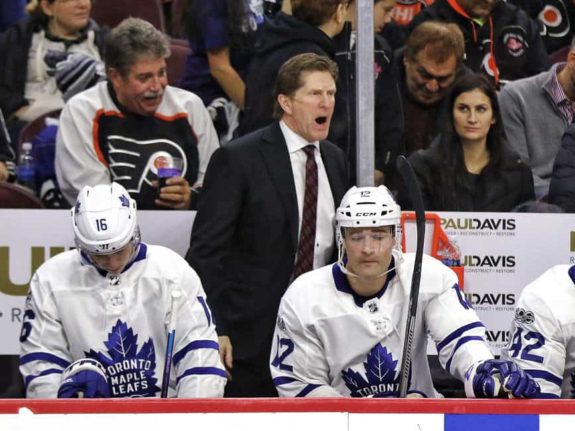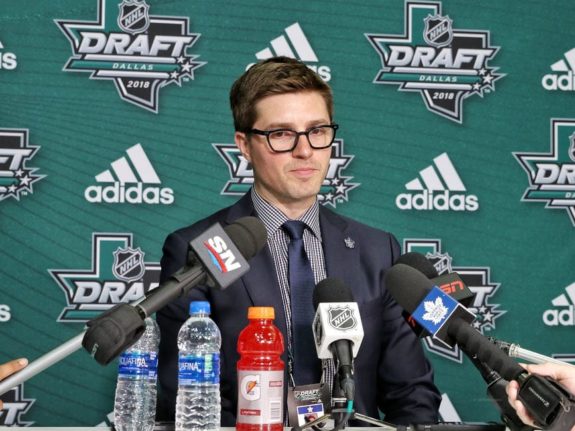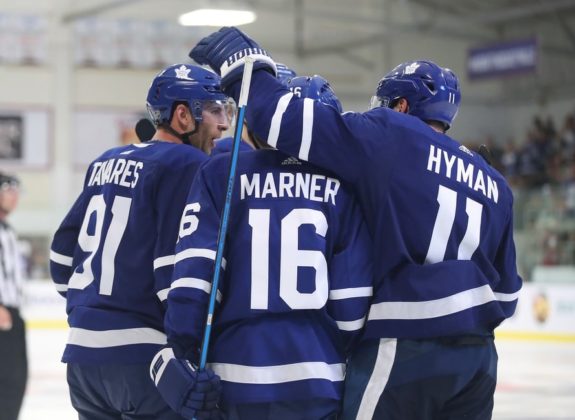It’s a common occurrence in all pro sports that when a team underperforms or fails to live up to expectations, the head coach is usually the scapegoat and relieved of his duties. While I don’t think a bad season from the Toronto Maple Leafs will spell the end of Mike Babcock’s tenure, I do believe a bad season will put him on the hot seat heading into the 2019-20 season.
The Leafs are a talented team with strengths and weaknesses, much like every other team in the league. However, on paper, they should have the coaching edge on a nightly basis, with one of the best motivators behind the bench directing them.

For those unfamiliar with Babcock’s resume, allow me to enlighten you. Since he was named head coach of the Anaheim Ducks in 2002-03, Babcock owns a 645-380 record, with 19 ties and 152 overtime/shootout losses. That’s good enough for a winning percentage of .611. He has one Stanley Cup victory to his name (2007-08) and two Western Conference Champions banners. He has coached Canada to a gold medal at the World Junior Championship in 2007, and then again to two Olympic gold medals in 2010 and 2014. To say he can’t “coach” would be disrespectful, but to say he isn’t stuck in his ways (stubborn) is foolish.
Year Three* of the Eight-Year Contract
Before you leave a comment in the comment section saying that this season is his fourth year in charge, I know that. But when Babcock signed on he inherited one of the worst rosters in the NHL and finished dead last. The last two seasons have been a better indication of what Babcock can do given the right personnel.
The first season the Leafs made the postseason was a wild ride. They snuck in as the second wildcard team and gave Washington everything they could handle. Kudos to Babcock for pushing the right buttons on a team that seemed a few years away from being a playoff contender.
Last season, the Buds’ had the third best record in the conference and had every chance of beating the Boston Bruins. The flaws of the team were evident, but Babcock was also extremely stubborn in his ways and could have done a better job adapting to the situation.
This upcoming season – year three* – should be excuse-free. Anything short of a playoff series win would be a huge disappointment and could land Babcock on the hot seat. I’m not predicting he will get fired, but if Babcock can’t pull the right strings with the abundance of talent he has up front and a goalie that is among the best in the league, then he will put Kyle Dubas in a very tough spot.

Babcock Needs to Efficiently Utilize Personnel
No more Leo Komarov means almost 16 open minutes per night that Babcock needs to assign to a player or line on a nightly basis. It means an open spot on the penalty kill and likely more production coming from where Komarov lined up on a game-to-game basis. The same can be said about Tyler Bozak and James van Riemsdyk’s TOI and production.
However, the question needs to be asked. Will Babcock get out of his own way and go against his methods for the betterment of the team? Yes, the third line will be exponentially better this year with Nazem Kadri anchoring the middle between Kasperi Kapanen and Andreas Johnsson but there will not be enough ice-time in key games to keep everyone happy.
We know Babcock loves his checking line and prefers to play them in the matchup game against the opponents best line, but at what point does it become a waste when the future captain (Auston Matthews) and the $11-million man (John Tavares) are sitting on the bench?
Instead, what I’m asking for is Babcock to play into the strengths of his personnel. Demand more defensive awareness from his top two lines and hold them accountable. Do not waiver from them, because at the end of the day, the Matthews and Tavares lines — along with Frederik Andersen — will be the players who get the team closest to where they want to be.
We all saw what happened in the postseason against the Bruins when Matthews was essentially irrelevant for the majority of the series. Babcock didn’t trust him enough and the results spoke for themselves. Don’t piss off the star players and the team will be fine.

For all the negative, one positive has come out of training camp so far. Babcock has seemingly decided to add Matthews to the top power-play unit alongside Tavares, Mitch Marner, Morgan Rielly and Kadri. Matthews will man the left flank with Marner opposite him, Tavares in front, Kadri in the middle, and Rielly at the point. If all goes according to plan and Babcock allows this unit enough time to jell, then there is no reason why the Leafs can’t have the best powerplay in the NHL.
New net-front PP role for Tavares, Matthews joins top unit – https://t.co/XalW2j4LtU: https://t.co/kXDnTgSwHZ pic.twitter.com/vIp3yPSs6o
— TSN (@TSN_Sports) September 21, 2018
At the end of the day, the players are responsible for what happens to their coach, but it is the coach’s responsibility to put his players in positions where they will succeed. I take no credit away from Babcock on how far he’s come as a coach and his accomplishments, but coaching the Maple Leafs requires a lot more adaptability than coaching Team Canada does. I’m hopeful Babcock will understand that and adapt his coaching philosophies to play into the strengths of the this year’s version of the Maple Leafs.